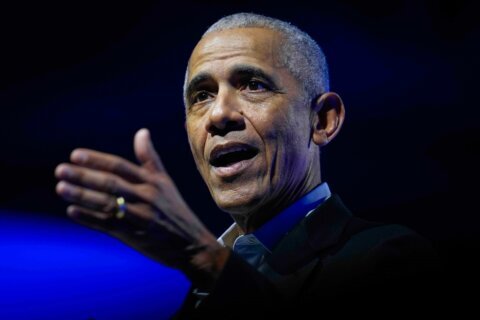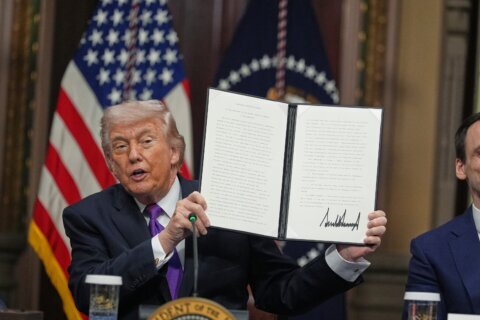WASHINGTON — Some small-time toll violators who live outside of Virginia, like D.C. or Maryland, don’t ever pay for skipping out on tolls. But a bill moving through the Virginia General Assembly could force out-of-state scofflaws to pay up.
The bill, advanced by a House subcommittee this week, would allow Virginia to enter into reciprocal enforcement deals with states like Maryland. The deals would allow the states to share information about toll violators who have not paid so that those violators would not be able to renew their vehicle registrations in their home states.
According to a report from the Virginia Department of Motor Vehicles, an estimated 200,000 drivers from outside of Virginia owe about $8.8 million in tolls, penalties and fees on four toll roads where violations are processed by the Virginia Department of Transportation. In Northern Virginia, VDOT only processes violations for the Dulles Toll Road.
The state with the largest number of Virginia toll violators is Maryland, where 63,923 drivers owe a total of $1.28 million. D.C. residents are second with 12,623 drivers who owed $192,742 at the time of the report in July.
The DMV report said that Maryland and D.C. drivers also top the list of non-Virginia violators on the 495 Express Lanes, which are operated by a private company, not the state. But the DMV noted that jurisdictional issues and a lack of reciprocity with other states had led to issues with collecting tolls from the express lanes.
House Bill 1070 would address some of the recommendations from the DMV to provide for due process in court and limit the collection cost for toll operators. The bill also aims to increase the amount of money actually collected by introducing reciprocity enforcement agreements with other states. Maryland recently authorized such deals.
The bill would also reiterate that any toll collection process would be treated as a traffic violation that must be initiated with a mailed bill within two years. And it would make clear that Virginia drivers would not have their licenses suspended over a failure to pay.
A separate House bill, which would also place limits on where tolls can be added, would provide for more immediate email or cellphone notices of violations or potential violations.
That bill would allow the McAuliffe administration’s plan to toll solo drivers traveling on Interstate 66 inside the Capital Beltway under an exemption for new tolls on roads that are restricted to high-occupancy vehicles only at certain times, like I-66. But the measure would maintain a toll ban for Interstate 81 or Interstate 95 south of Fredericksburg unless the General Assembly signs off. However, the bill would allow newly constructed roads to open with tolls.







